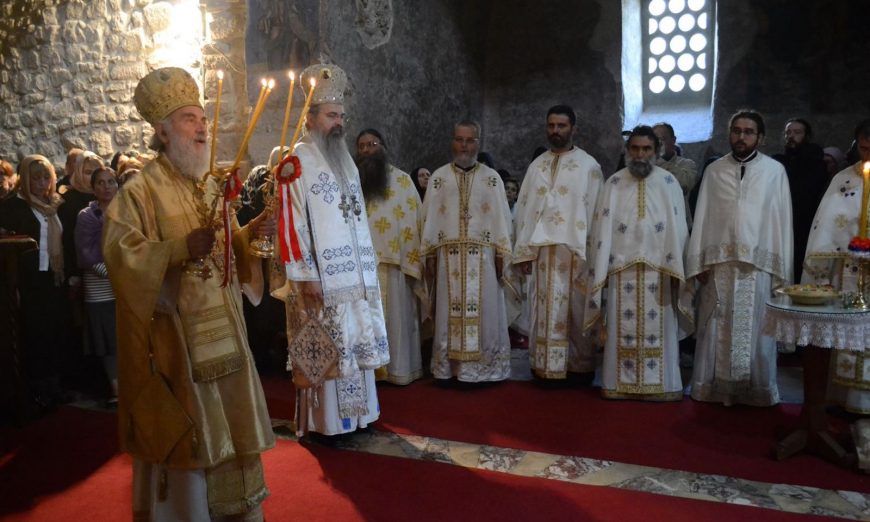Monday, September 24, 2007, Turkish Daily News
Orhan Kemal Cengiz
Do you know how Turkey regulates the legal status of the Ecumenical Patriarchate? There is no law or regulation, only two declarations by the Istanbul governorate issued in 1923 and 1970, called Talimat and Tezkere respectively. Turkish law relies on the principal of the hierarchy of norms according to which no norm can be contrary to the norm above.
When we talk about the norms of hierarchy in Turkey we are talking about quite a long list, starting from the Constitution and continuing to laws, decrees and so on. None of these ‘legislative documents’ includes any reference to the Patriarchate or to any other minority group. Instead we have these two ‘administrative documents’ to govern the Patriarchate’s structural issues. In law we have a term, ‘soft laws’ which refers to documents that can be easily changed.
The Talimat and Tezkere cannot even be labeled as ‘soft laws’ or ‘documents’ because, in Turkey, theoretically, the destiny of these documents are between the two lips of the Istanbul governor. I say in theory because no governor would dare to move a comma in one of these documents without being specifically instructed to do so by the government. So we have a kind of ‘Turkish irony’ here, an almost unchangeable status of the Patriarchate being governed by two documents that can be changed overnight by the Istanbul governor. How should we read this? I read it like this: ‘you may claim your Patriarch is the universal religious leader but the destiny of his office is between the two lips of my governor.’ Of course, this state discourse also requires a lengthy analysis which is not the subject of this article.
Not just a ‘religious’ matter:
Whether the Patriarchate is ecumenical is not only a matter of using a religious title but also has a huge effect on its all relations and legal actions. Turkey insists that the Patriarchate represents only the small Orthodox community in Istanbul. Therefore, patriarchs must be Turkish citizens and must be elected by Turkish citizens. Likewise religious officials must either be Turkish citizens or get work permits, the Halki Religious School should be attached to National Education Ministry and so on. Most probably it would not be possible for the Greek Orthodox community to choose a new patriarch who has the necessary qualifications for the post. So the Patriarchate is pushed hard into a corner and this is now a matter of life and death. As I said earlier, this problem can only be solved by the European Court of Human Rights. However, one of the most basic rules of taking a case to the ECHR is that you must exhaust all available domestic remedies before taking any case before this international body.
As far as I know, the Patriarchate has not opened any cases at the domestic level to fight against the restrictions they face. My understanding is that so far the Patriarchate has never had any strategic litigation process. When I say strategic litigation I mean assuming a proactive stance against the violations and calculating every move with a strategic point of view. Looking from this perspective the Patriarchate has two options. The first is to take one single ‘big’ case to the ECHR, arguing that Turkey’s non-recognition of the title ‘Ecumenical’ is a violation of freedom of religion, and wait for five or six years for the outcome. At the end most probably they will be confronted with a simple declaration from the ECHR: ‘Okay, you may have a strong case but you have not exhausted domestic remedies in Turkey. You should have brought administrative and other kind of cases before the Turkish courts first and then brought this case before us.’
Changing the mindset:
The alternative is to completely change the current mindset and bring cases for every single violation. Most probably most of these cases will end up accomplishing nothing in Turkey. However, when they are taken before the European Court they will constitute the parts of a puzzle, and the puzzle’s name would be the lack of legal recognition plus the inability to enjoy the ecumenical character of the institution.
In other words, work permit issues, the problem of Halki school, defamations, attacks, insults, interferences with Patriarchate elections, and interference with property rights, should all be carefully brought first before Turkish courts and then before the European Court of Human Rights. Each of these cases must employ arguments on the ecumenical status of the Patriarchate in order to show that these violations are related to Turkey’s non-recognition of the ecumenical character of the Patriarchate. Instead of trying to explain this problem to the European Court of Human Rights abstractly, the general picture can be drawn by gathering many specific details together.
How the Patriarchate can succeed against these two old instruments dated 1923 and 1970 is the subject of the third piece of this serial.
http://www.turkishdailynews.com.tr/article.php?enewsid=84088

